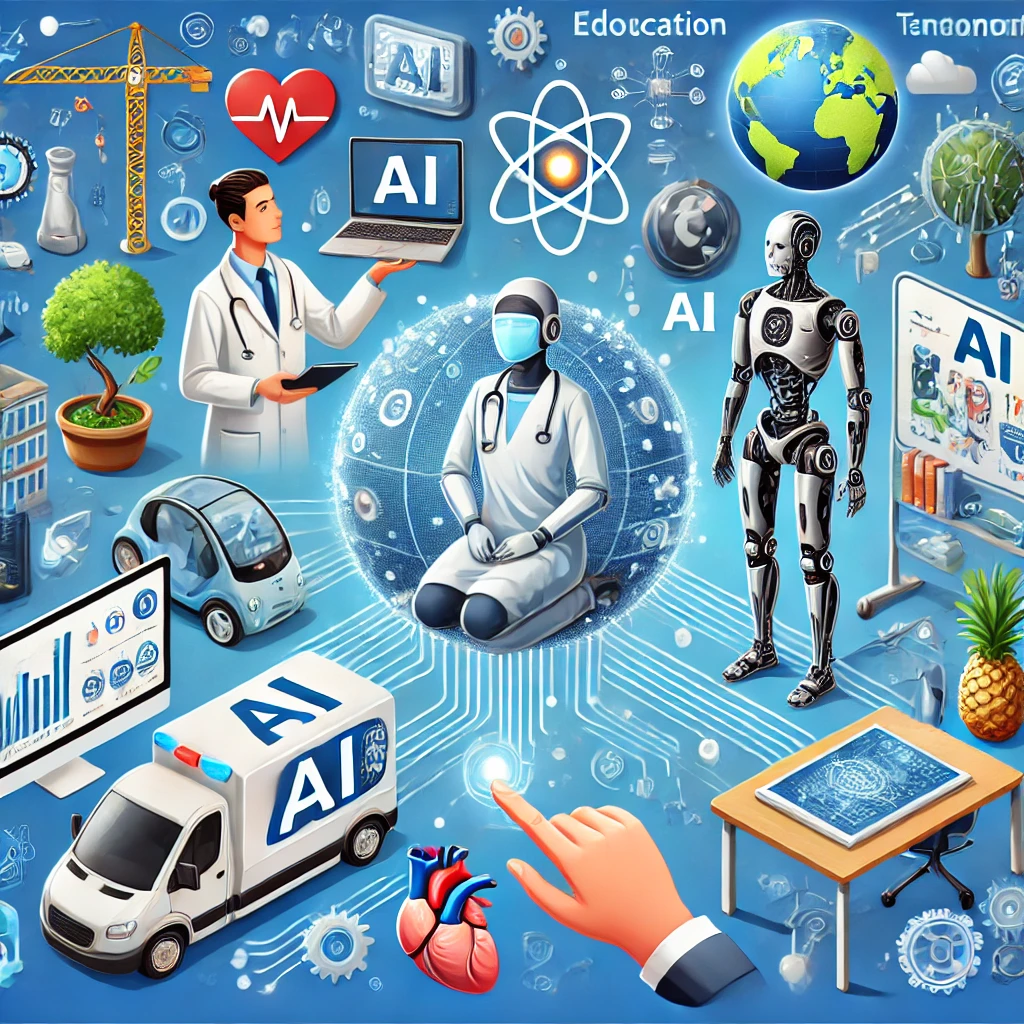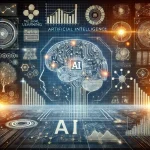Artificial intelligence (AI) is poised to revolutionize the way we live, work, and interact with the world. As AI technology advances, it promises to bring about significant benefits across various sectors, from healthcare and education to transportation and entertainment. However, the rapid development of AI also presents several challenges that society must address to ensure a harmonious integration of these technologies. This article explores the prospects and challenges of AI in the future, highlighting both its potential benefits and the hurdles that need to be overcome.
Prospects of AI
AI holds the promise of transforming numerous aspects of our lives. Here are some key areas where AI is expected to make a significant impact:
Healthcare
AI has the potential to revolutionize healthcare by improving diagnostics, personalized treatment, and patient care. AI algorithms can analyze medical data, identify patterns, and predict disease outbreaks. For instance, AI-powered imaging tools can detect anomalies in medical scans with high accuracy, aiding in early diagnosis of conditions such as cancer. Additionally, AI can assist in drug discovery by analyzing vast datasets to identify potential drug candidates more efficiently.
Education
In education, AI can provide personalized learning experiences tailored to individual students’ needs. Intelligent tutoring systems can adapt to a student’s learning pace and style, offering customized support and feedback. Moreover, AI can automate administrative tasks, allowing educators to focus more on teaching and mentoring. With AI-driven analytics, educational institutions can gain insights into student performance and improve curriculum design.
Transportation
The transportation sector is set to benefit immensely from AI technologies. Autonomous vehicles, powered by AI, promise to enhance road safety and reduce traffic congestion. AI algorithms can optimize traffic flow, predict maintenance needs, and improve public transportation systems. In logistics, AI can streamline supply chain management, ensuring timely deliveries and reducing operational costs.
Environmental Sustainability
AI can play a crucial role in addressing environmental challenges. By analyzing data from sensors and satellite imagery, AI can monitor environmental changes and predict natural disasters. AI-driven solutions can optimize energy consumption, promote the use of renewable energy sources, and enhance waste management processes. These applications contribute to more sustainable practices and help mitigate the impact of climate change.
Challenges of AI
Despite its potential benefits, the development and deployment of AI come with several challenges that need to be addressed to ensure ethical and equitable outcomes:
Ethical Concerns
One of the primary challenges of AI is addressing ethical concerns related to bias, fairness, and transparency. AI algorithms are trained on data that may contain biases, leading to unfair or discriminatory outcomes. Ensuring that AI systems are transparent and explainable is crucial for building trust and accountability. Researchers and developers must work towards creating ethical AI frameworks that prioritize human values and rights.
Job Displacement
The automation of tasks through AI has raised concerns about job displacement and the future of work. While AI can enhance productivity and create new job opportunities, it also poses a threat to jobs that involve routine or repetitive tasks. Society must prepare for this transition by investing in reskilling and upskilling programs to equip the workforce with the skills needed for the AI-driven economy. Policies that support workers affected by automation are essential to ensure an inclusive labor market.
Privacy and Security
AI’s reliance on vast amounts of data raises significant privacy and security concerns. Collecting, storing, and analyzing personal data necessitate robust data protection measures to prevent misuse and breaches. Additionally, AI systems must be safeguarded against cyberattacks that could compromise their integrity and reliability. Developing secure AI infrastructures and implementing stringent data privacy regulations are critical to addressing these challenges.
Regulation and Governance
The rapid advancement of AI technologies necessitates effective regulation and governance frameworks. Policymakers must strike a balance between fostering innovation and ensuring responsible AI development. Establishing international standards and guidelines for AI deployment can help address cross-border challenges and promote ethical practices. Collaboration between governments, industry stakeholders, and academia is vital to create comprehensive AI governance structures.
Conclusion
The future of AI holds immense promise for improving various aspects of society, from healthcare and education to transportation and environmental sustainability. However, realizing the full potential of AI requires addressing significant challenges related to ethics, job displacement, privacy, and regulation. By fostering collaboration and implementing thoughtful policies, society can harness the benefits of AI while mitigating its risks, ensuring a future where AI contributes positively to human well-being and progress.



waiting for AI to find a cure for cancer
Kinda feel bad disappointin ya… aI ain’t gonna come up with nothin new😅
AI’s future looks bright! ✨ But ethics & jobs 🤔 are key. Collab & policy 👍 are a must! 💯
already cookin up laws to keep ai in check🤔
Man by the time those davils come up with somethin, yall gonna be slaves!! 😂
ai’s gonna solve everything, they say? no its not for me 👎👎